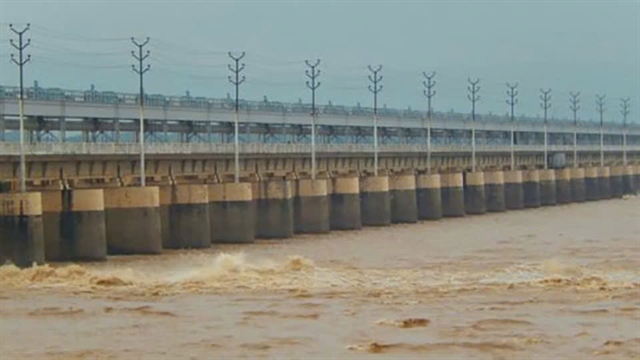 World
World

 |
| The Indian side responded that any changes to the current treaty's provisions would require careful consideration of their domestic needs and coordination with state governments. — The Daily Star/ANN Photo |
NEW DELHI — Bangladesh has conveyed to India its desire for a longer-duration treaty for sharing the Ganges waters and a more predictable flow when the existing accord expires. This position was presented today during a meeting of the India-Bangladesh Joint River Commission (JRC) in New Delhi.
“Bangladesh sought a longer-term Ganges water-sharing accord and a predictable Ganges flow,” officials of the Bangladesh delegation and the Indian Jalshakti Ministry who were privy to the meeting said, requesting anonymity.
The Indian side responded that any changes to the current treaty’s provisions would require careful consideration of their domestic needs and coordination with state governments.
Sources said today’s talks were used as a preparatory exercise for negotiations on the 1996 Ganges Waters Treaty.
For the treaty’s renewal, Bangladesh is likely to press for an average of 40,000 cubic feet per second (cusecs) of water as against 35,000 cusecs under the 1996 treaty.
Bangladesh’s 10-member delegation, led by JRC member Mohd Abul Hossen, also proposed the creation of a new “institutional mechanism” to oversee water-sharing for 14 rivers, including the Muhuri, Khowai, Gomati, Dharal, and Doodhkumar. India suggested that the existing JRC framework could be strengthened instead of creating a new body, as it already addresses all transboundary river issues.
The long-pending Teesta water-sharing agreement was also raised. Indian officials reiterated that progress on this issue depends on building a consensus with the West Bengal state government, which Chief Minister Mamata Banerjee has steadfastly opposed before.
Dhaka also flagged the issue of India’s support for a joint flood forecasting and management system and pressed for more regular sharing of flood-related data, particularly in relation to Tripura, where heavy rainfall last year had caused widespread flooding in eastern Bangladesh.
Reiterating their commitment to that, the Indian officials mentioned New Delhi’s track record of data-sharing with neighbouring countries, including the recent releases of flood-related information to Pakistan despite suspension of the Indus Water Treaty, as evidence of its willingness to cooperate on trans-boundary river management.
Since the dry season flow in the Ganges comes down, Bangladesh faces water shortages during this time, which affects the Gorai River and the Sundarbans. Indian officials point out that there is fluctuation in water availability in the Ganges during the dry season due to natural factors. — THE DAILY STAR/ANN




